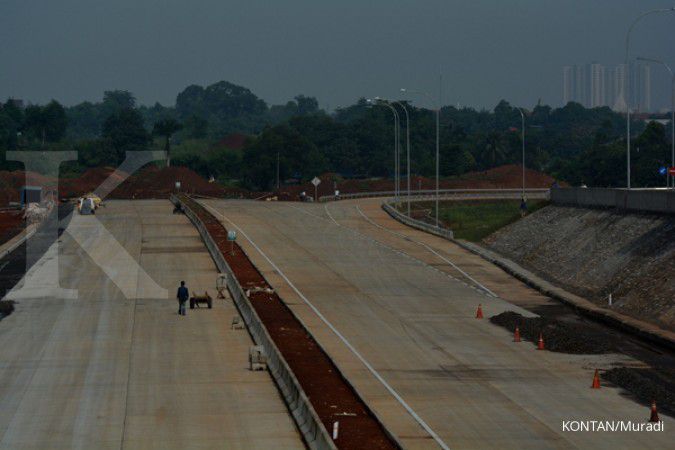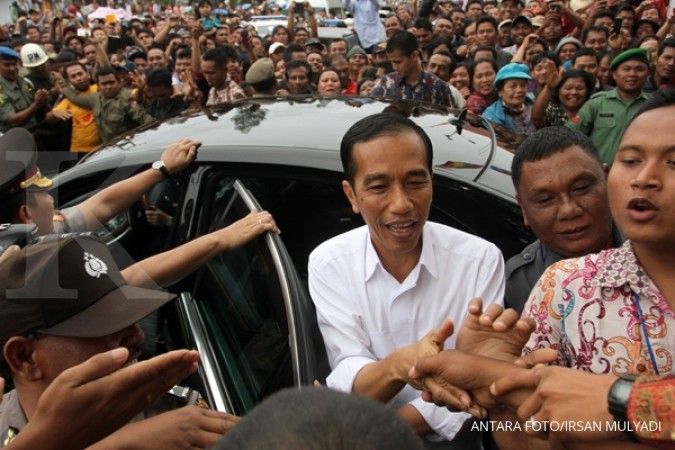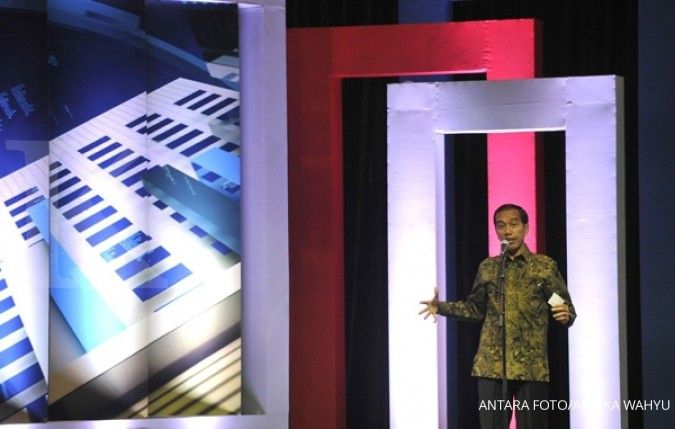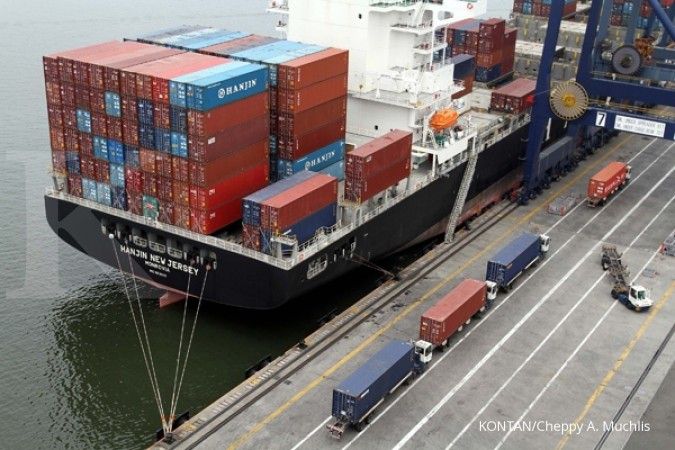JAKARTA. The Indonesian economy will stay resilient and there is no sign of massive capital outflow despite the upcoming fund rate increase by the US Federal Reserve, according to a business executive and regulator.
Mandiri Sekuritas president director Abiprayadi Riyatno said the domestic capital market would survive potential capital outflow because the country would see foreign capital investments come in.
“Recently, we saw an outflow of foreign funds worth around Rp 40 trillion [US$3.2 billion]-Rp 50 trillion from the domestic bond market, but local players are able to buy at the same time. That means the Indonesian market is quite resilient,” he said on Tuesday.
Abiprayadi said long-term investors would stay and short-term ones would return to the country due to Indonesia’s relatively high yields, even though they would leave temporarily when the Fed decided to hike its rate.
The Fed is expected to lift the fund rate sometime this year, with a Reuters poll showing the increase will take place in the second quarter.
According to Bank Mandiri’s research, foreign investors posted net buying of Rp 777 billion from a total Rp 11.7 trillion in Monday’s stock trading on the Indonesia Stock Exchange (IDX), with an outflow of Rp 531 billion month-to-date and year-to-date.
Meanwhile, foreign ownership in government bonds as of Jan. 22 stood at Rp 485.5 trillion, or 39.1 percent of total outstanding, with an inflow of Rp 24.2 trillion month-to-date and year-to-date.
The 10-year government bond yield on Monday was up 1.6 basis points (bps) to 7.30 percent, decreasing by 49.7 bps year-to-date.
Abiprayadi said Indonesia needed to strengthen its domestic capital market to counter outflow risks by increasing retail and corporate investors, as well as listed companies.
He said the domestic capital market would benefit from the coming of more foreign investors when infrastructure projects were carried out by the government.
“The domestic capital market will also have its role in financing the country’s infrastructure projects alongside the banking industry, because more investors mean more value in the stock market and more securities to be issued,” he said.
Meanwhile, Financial Services Authority (OJK) chairman Muliaman D. Hadad said the financial regulator, along with Bank Indonesia, would always support financial deepening efforts to improve the domestic capital market as a way of financing the country’s infrastructure projects.
Muliaman said the OJK would specifically support private and state companies to issue debt papers, citing that “electricity, water, toll road and seaport construction projects would create clear income streams to be used as the basis for investment instruments.”
As part of the company’s business strategies to grab opportunities from infrastructure developments, Abiprayadi said Mandiri Sekuritas had been appointed as the lead or co-lead underwriter to handle rights issues or bonds, including in the infrastructure sector, worth around Rp 10 trillion-Rp 12 trillion this year.
The company is expecting at least 10 state firms to have rights issues this year, even though they should first request permission from the House of Representatives.
“There will be 10 initial public offerings [IPO] and rights issues, as well as 20 corporate bond issues that we will handle this year. Perhaps, two IPOs will be conducted in the first quarter of this year,” he said.
According to Abiprayadi, several of the planned IPOs were carried over from last year for political reasons. Currently, the companies planning the IPOs are waiting for the OJK’s approval. (Grace D. Amianti)
Infrastructure projects to counter capital outflow
January 29, 2015, 01.06 PM
/2014/08/26/214614996p.jpg)
ILUSTRASI. Nasabah Valas, Cek Kurs Dollar-Rupiah di BRI Jelang Tengah Hari Ini Jumat (11/8). KONTAN/Cheppy A. Muchlis/18/09/2017
Source: The Jakarta Post
| Editor: Hendra Gunawan
Latest News
-
February 09, 2026, 05.55 PM
Indonesia to Hold Follow-up Meeting with MSCI This Week after Market Rout
-
February 09, 2026, 08.05 AM
GLOBAL MARKETS-Asia Rallies as Japan Shares Surge to Record Peak
-
February 08, 2026, 02.30 PM
South Korean Crypto Firm Accidentally Sends US$44 Billion in Bitcoins to Users
-
February 07, 2026, 05.13 PM
Indonesia-Australia Relations: Booming Business, Golden Opportunities for Investors
-
February 07, 2026, 04.59 PM
Indonesian Comedian Summoned by Police Over Netflix Show
-
February 07, 2026, 05.57 AM
GLOBAL MARKETS-Stocks, Bitcoin Rally, Regaining Some Lost Ground with Precious Metals
-
February 06, 2026, 07.58 AM
Indonesian Markets Face More Pressure after Moody's Cuts Outlook
-
February 05, 2026, 07.19 PM
Moody's Cuts Indonesia's Sovereign Rating Outlook to Negative
-
February 05, 2026, 02.43 PM
Indonesia Posts Fastest Economic Growth Rate in Three Years













